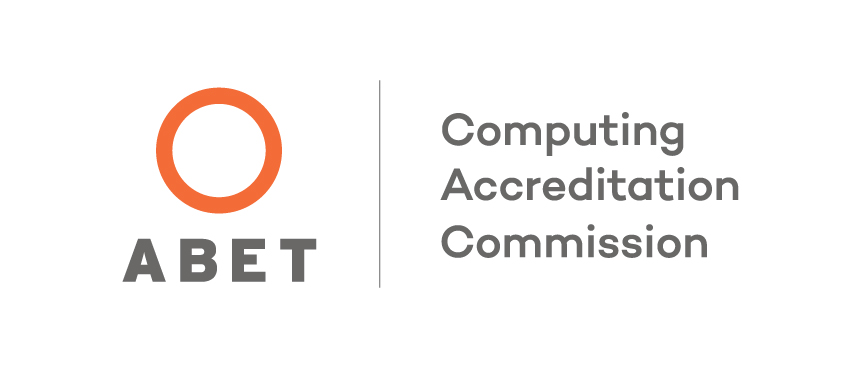Degree Programs Objectives & Outcomes
Bachelor of Science in Computer Science
Program Educational Objectives
Within five years after graduation, the graduates of the Bachelor of Science Computer Science program at Bowling Green State University will have demonstrated their ability to:
- Advance their careers or pursue graduate studies in the highly dynamic and continually changing field of computer science;
- Acquire new skills and master new technologies in order to successfully approach and solve real-world problems;
- Participate in and successfully complete both independent and collaborative technical projects.
Student Outcomes (Learning Outcomes)
By the time of graduation, the students in the Bachelor of Science Computer Science program at Bowling Green State University are expected to be able to:
- Analyze a complex computing problem and to apply principles of computing and other relevant disciplines to identify solutions;
- Design, implement, and evaluate a computing-based solution to meet a given set of computing requirements in the context of the program's discipline;
- Communicate effectively in a variety of professional contexts;
- Recognize professional responsibilities and make informed judgements in computing practice based on legal and ethical principles;
- Function effectively as a member or leader of a team engaged in activities appropriate to the program's discipline;
- Apply computer science theory and software development fundamentals to produce computing-based solutions.
Bachelor of Arts in Computer Science
Program Educational Objectives
Within five years after graduation, the graduates of the Bachelor of Arts in Computer Science program at Bowling Green State University will have demonstrated their ability to:
- Advance their careers or pursue graduate studies in the highly dynamic and continually changing field of computer science or computing-related areas;
- Acquire new skills and master new technologies in order to successfully approach and solve real-world problems;
- Participate in and successfully complete both independent and collaborative projects.
Student Outcomes (Learning Outcomes)
By the time of graduation, the students in the Bachelor of Arts Computer Science program at Bowling Green State University are expected to be able to:
- Analyze a given problem, and identify and define the computing requirements appropriate to its solution;
- Use current computing techniques, skills and tools in a real-world environment;
- Apply mathematical foundations and computer science theory as appropriate in modeling and solving problems;
- Understand the impact of professional, ethical, and societal issues in computing;
- Understand design and development principles in the construction of software systems;
- Communicate effectively with others.
Bachelor of Science in Software Engineering
Program Educational Objectives
Within five years after graduation, the graduates of the Bachelor of Science Software Engineering program at Bowling Green State University will have demonstrated their ability to:
- Advance their careers or pursue graduate studies in the highly dynamic and in demand field of software engineering and its related fields;
- Acquire new skills and master new technologies in order to successfully approach and engineer practical solutions to real-world problems;
- Participate in culturally diverse teams, becoming global collaborators and adapting to an ever-changing field.
Student Outcomes (Learning Outcomes)
By the time of graduation, the students in the Bachelor of Science Software Engineering program at Bowling Green State University are expected to be able to:
- Identify, formulate, and solve complex engineering problems by applying principles of engineering, science and mathematics;
- Apply engineering design to produce solutions that meet specific needs with consideration of public health, safety and welfare, as well as global, cultural, social, environmental, and economic factors;
- Communicate effectively with a range of audiences;
- Recognize ethical and professional responsibilities in engineering situations and make informed judgements, which must consider the impact of these engineering solutions within global, economic, environmental and societal contexts;
- Function effectively on a team whose members together provide leadership, create a collaborative and inclusive environment, establish goals, plan tasks, and meet objectives;
- Develop and conduct appropriate experimentation, analyze and interpret data, and use engineering judgement to draw conclusions;
- Acquire and apply new knowledge as needed, using appropriate learning strategies.
Updated: 05/16/2022 10:43AM

